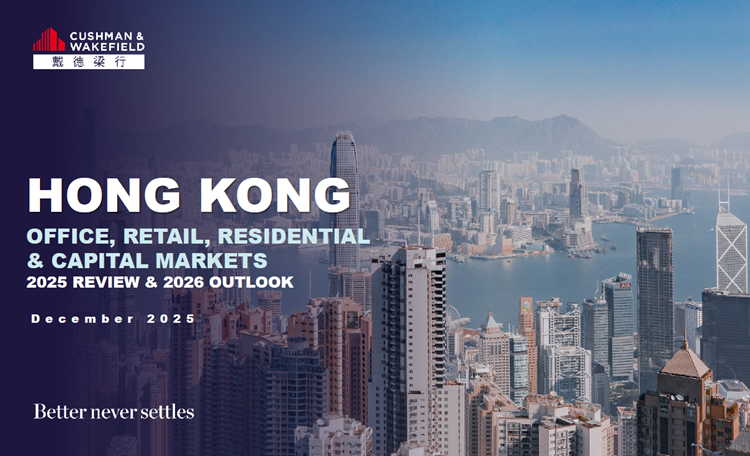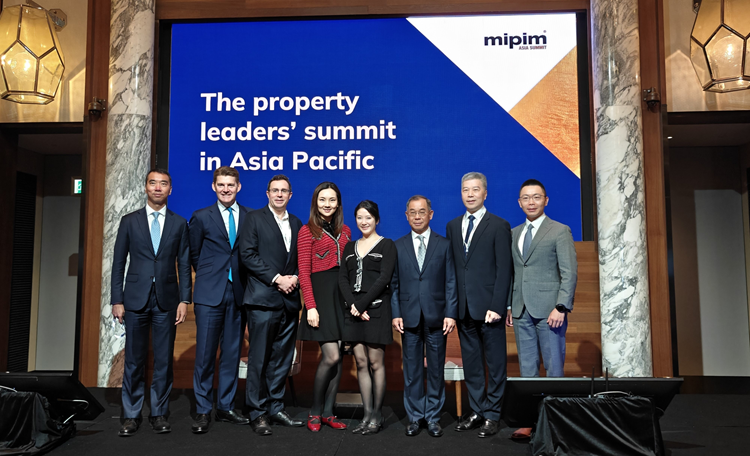Cushman & Wakefield today released its Life Sciences on the Chinese Mainland – Vital Signs: Diagnosing Trends in the Life Sciences Real Estate Market on the Chinese Mainland report. It is based on in-depth interview surveys we conducted on professionals active in the life sciences sector on the Chinese mainland. The life sciences industry on the Chinese mainland is undergoing a transformative phase, driven by progressive policies, groundbreaking innovations, the emergence of influential life sciences companies, and strategic regional development. This report delves into the latest trends shaping the sector.
Policy Landscape — National and Local Catalysts
Reforms enacted in 2024-2025 have significantly accelerated sector development. Nationally, China relaxed restrictions on foreign investment in gene and cell therapy and allowed the establishment of wholly foreign-owned hospitals in key cities. Regulatory incentives — such as data protection and marketing exclusivity — have improved market access for innovative drugs. Locally, cities like Beijing, Shanghai, Shenzhen, Guangzhou, and Suzhou are rolling out targeted subsidies, fast-track approvals, and ecosystem-building programs that directly benefit biotech development.
Industry Innovation and Company Growth
Chinese life sciences companies are moving beyond generic drug manufacturing toward innovative therapies. Firms like Akeso, BeiGene, Gracell, and Legend Biotech are now global players, leading in CAR-T, bispecific antibodies, and AI-assisted R&D. These companies are not only commercializing cutting-edge treatments but also attracting international investment and licensing agreements, reinforcing the Chinese mainland’s global relevance in life sciences.
Real Estate Development and Regional Hubs
Innovation hubs such as Suzhou BioBAY, Zhangjiang Hi-Tech Park (Shanghai), and the Bioisland Innovation Centre (Guangdong) are central to regional clustering. These hubs offer end-to-end support, including shared labs, venture capital access, GMP-compliant facilities, and proximity to academic and clinical networks. The rise of second-tier innovation cities like Chengdu and Ningbo further expands growth corridors.
Landlord Perspectives — Evolving Real Estate Models
Real estate developers and landlords are adapting to sector-specific requirements through asset-light models, flexible leasing, and high-specification lab and production space. Tier-1 cities face saturation, but central and western regions exhibit healthy demand. Developers are incorporating advanced sustainability and compliance features to meet growing regulatory and ESG expectations, particularly in GMP and cleanroom environments.
Digitalization, environmental policies, and differentiated tenant strategies are shaping performance. Operators now focus on integrated ecosystems with platforms that link tenants to R&D services, policy benefits, and technology partners.
Occupier Perspectives — Growth, Innovation, and Challenges
Life sciences occupiers are navigating regulatory reform, rising compliance demands, and intensified market competition. Many are localizing production and R&D, leveraging regional subsidies, and investing in AI-powered innovation platforms. Occupiers seek flexibility, proximity to talent and infrastructure, and co-located R&D and manufacturing to support accelerated innovation and operational agility.
In real estate, demand is strongest for GMP-certified labs, modular production facilities, and shared innovation platforms. Occupiers emphasize location advantages, sustainability certifications (e.g., LEED, WELL), and integration into clusters that enable faster time-to-market.
Tony Su, Managing Director, National Head of Industrial & Logistics Property Services, China, said, “Life sciences business parks on the Chinese mainland demonstrated clear regional differentiation, highlighting opportunities for strategic positioning. While Tier-1 cities saw more moderate performance due to broader macroeconomic factors and abundant supply, core cities in central and western regions recorded healthy occupancy rates, underpinned by strong industrial clustering and increasingly sophisticated ecosystems, contributing to steady growth in asset value.”
Johnathan Wei, President, Project & Occupier Services, China, commented, “Several interviewed life sciences companies on the Chinese mainland achieved revenue growth supported by innovative products and favorable policy tailwinds. While overall growth remained modest for many, a select group reported strong performance, highlighting opportunities for differentiation”.
Andrew Chan, Managing Director, Head of Valuation & Advisory Services, Greater China, added,” Looking ahead to 2025 and beyond, growth opportunities lie in AI-driven drug discovery, personalized medicine, advanced therapeutics (CGT, RNA), and green-certified facilities. Government policies continue to support innovation through fast-track approvals, rare disease funding, and subsidies aligned with dual-carbon and ESG goals”.
Shaun Brodie, Head of Research Content, Greater China, said, “Life sciences real estate is shifting from generic parks to specialized, digitally enabled campuses with high compliance and flexibility. Investment strategies increasingly emphasize long-term partnerships, collaborative operating models, and digital infrastructure. Both landlords and occupiers express cautious optimism, with strategic differentiation and regional targeting seen as keys to unlocking future value”.
About Cushman & Wakefield
Cushman & Wakefield (NYSE: CWK) is a leading global commercial real estate services firm for property owners and occupiers with approximately 52,000 employees in nearly 400 offices and 60 countries. In Greater China, a network of 23 offices serves local markets across the region. In 2023, the firm reported revenue of $9.5 billion across its core services of valuation, consulting, project & development services, capital markets, project & occupier services, industrial & logistics, retail and others. It also receives numerous industry and business accolades for its award-winning culture and commitment to Diversity, Equity and Inclusion (DEI), sustainability and more. For additional information, visit
www.cushmanwakefield.com.




